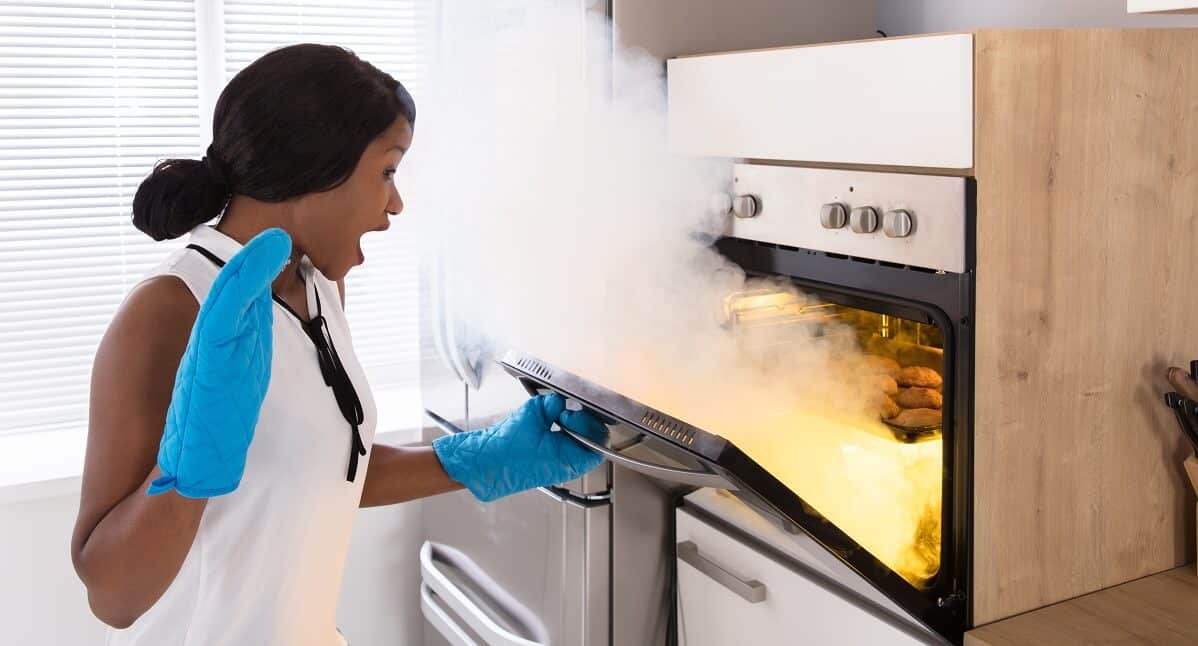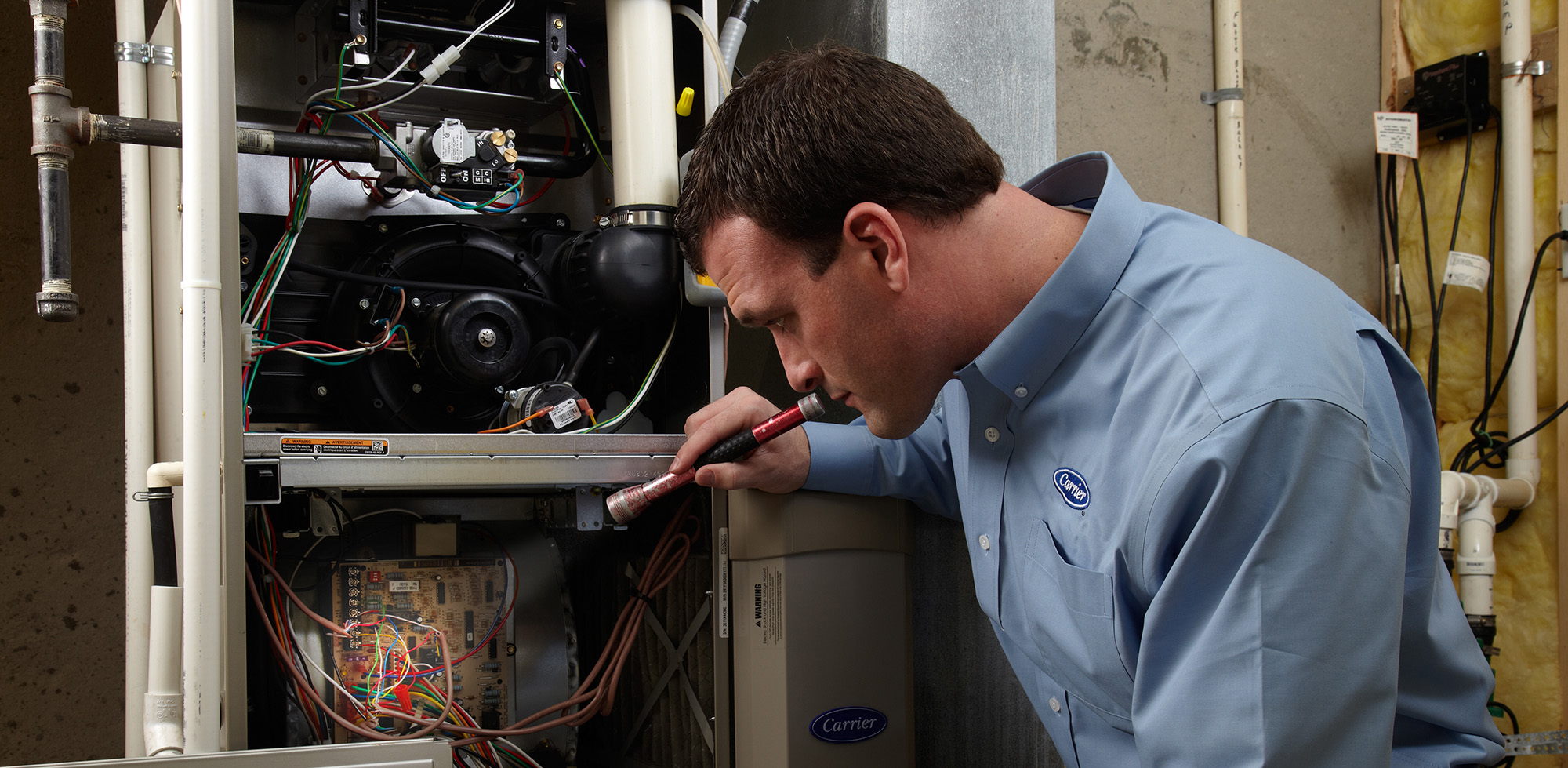Have you ever walked into your house and noticed a strange, burning smell in the air? It can be unsettling, leaving you feeling anxious and eager to find the source.
Is it something serious, or just a harmless odor? Your mind races as you try to solve the mystery before it becomes a bigger problem. We’re going to guide you through the potential causes of that burning smell in your home.
You’ll learn how to identify if it’s a minor issue or something that requires immediate attention. We’ll provide you with practical tips and solutions to help you eliminate the smell and keep your home safe and comfortable. Don’t let worry consume you—read on to uncover the secrets behind that burning scent and regain your peace of mind.
Identify The Source
Identifying the source of a burning smell in your house is crucial. The scent can signal potential hazards. Discovering its origin helps prevent accidents. It also ensures the safety of your home and loved ones. Different areas of your house can produce these odors. Let’s explore the common sources.
Common Household Sources
Burning smells often arise from everyday items. Cooking spills or forgotten food in the oven can emit smoke. Candles might burn too close to flammable materials. Overheated incense sticks could be the culprit. Even forgotten cigarettes can create a burnt aroma. Always check these areas first.
Electrical Issues
Electrical problems are a frequent cause of burning smells. Faulty wiring may lead to overheating. Overloaded circuits can produce a burnt scent. Sometimes, old plugs or sockets get too hot. Ensure all wires and outlets are in good condition. This prevents fires and keeps your home safe.
Appliance Malfunctions
Malfunctioning appliances can emit burning smells. A dishwasher might have a heating element issue. Washing machines can overheat during operation. Refrigerators might have a faulty motor. Regular maintenance checks can prevent these problems. Keeping appliances in top shape ensures safety.
Heating System Concerns
Heating systems can also be sources of burning odors. Dust accumulation in vents often causes this. Furnace filters might be clogged, leading to overheated components. Check for signs of wear in your heating system. Regular inspections can prevent these issues. Proper maintenance keeps your home warm and safe.

Credit: enviroklenz.com
Immediate Safety Measures
Imagine the unsettling feeling when you enter your home and it smells like something is burning. It’s not just an inconvenience; it’s a potential hazard that demands immediate action. Knowing what to do at this moment can make all the difference in ensuring your safety and protecting your home. Let’s dive into the critical safety measures you can take right away.
Evacuation Procedures
First, focus on getting everyone out safely. Quickly assess the situation. Is there visible smoke or fire? If so, evacuate immediately. Don’t wait to figure out the source. Your safety is the priority. Gather your family and pets, and head to a designated safe spot outside.
Practice your evacuation plan regularly, like fire drills at school. This ensures everyone knows where to go and what to do. Remember, doors and windows may be your quickest route out. Do you have a plan in place?
Using Fire Extinguishers
Once everyone is safe, and if it’s safe to do so, consider using a fire extinguisher. Know where your extinguishers are located. A small fire can quickly become dangerous, so act fast. Make sure you know how to use it properly—PASS: Pull, Aim, Squeeze, and Sweep.
Check your extinguishers regularly to ensure they’re functional. It’s a good idea to familiarize yourself with different types, such as water, foam, and CO2. Ever wondered which type is best for your kitchen or garage?
When To Call Emergency Services
If the smell persists or you can’t locate the source, call emergency services. Time is crucial. They’re equipped to handle situations that might be beyond your control. Don’t hesitate—better safe than sorry.
Even if you manage to extinguish a small fire, having professionals assess any damage is wise. They can ensure there’s no hidden danger like smoldering embers. Have you ever thought about how a quick call could save lives?
Taking these steps can make the difference between a minor scare and a major disaster. Each moment counts when you smell something burning. Are you prepared to act swiftly and safely?
Quick Fixes For Minor Issues
Walking into a house that smells like something is burning can be alarming. Quick fixes can help resolve minor issues before they escalate. Understanding common causes and solutions is crucial. This guide offers practical steps to address burning smells effectively. Let’s dive into troubleshooting, resetting, and inspecting.
Troubleshooting Electrical Problems
Start by checking electrical outlets and switches for overheating. Warm or discolored outlets could indicate trouble. Unplug devices immediately to prevent further damage. Use your senses to locate the source of the smell. Listen for unusual buzzing sounds. Feel for warmth around outlets and switches. If you find any issues, consult an electrician.
Resetting Tripped Circuit Breakers
Tripped breakers often cause burning smells. Locate your home’s breaker panel. Identify any tripped switches. They’re usually in the “off” position. Flip the tripped switch back to “on”. Ensure all electrical loads are within safe limits. Overloading can lead to tripped breakers and burning smells. If the breaker trips again, seek professional help.
Inspecting And Repairing Appliances
Appliances can also be sources of burning smells. Unplug appliances before inspecting them for damage. Look for frayed cords or damaged plugs. Check for overheating or unusual noises. Clean filters and vents regularly to prevent dust buildup. Replace worn-out parts promptly. Regular maintenance extends appliance life and reduces fire risks.

Credit: www.carrier.com
Preventative Steps
Detecting a burning smell in your home can be alarming. Check all appliances and electrical outlets for overheating. Regularly clean kitchen surfaces and vents to prevent buildup of grease.
When your house smells like something is burning, it’s not just unsettling—it can also be a sign of potential danger. To ensure your home remains safe and free from such distressing odors, implementing preventative steps is crucial. These steps not only safeguard your family but also extend the life of your household appliances and electrical systems. Below are some practical and actionable insights that can help keep your home safe and sound.
Regular Maintenance Tips
Regular maintenance is your first line of defense against unexpected issues. Consider creating a simple schedule for checking your appliances and electrical systems. Every three months, inspect your oven, stove, and other heat-generating devices for any signs of wear or damage. Keeping a clean environment also makes a big difference. Grease and dust build-up in kitchen appliances can cause burning smells. Clean your oven thoroughly at least once a month and wipe down surfaces regularly. Think about your HVAC systems too. Filters clogged with dust can overheat and emit a burning odor. Change them every three months to keep airflow steady and clean.
Safe Appliance Usage
Using appliances safely is a habit that pays off. Avoid overloading your outlets with too many plugs. I once overloaded an outlet with several kitchen gadgets and noticed a strange smell. It turned out to be a warning sign of overheating. Always follow the manufacturer’s guidelines for usage and maintenance. If your appliance manual suggests not using an extension cord, it’s for a good reason. This ensures the appliance receives the correct voltage and minimizes fire risk. Unplug appliances when not in use. This not only saves energy but also prevents any electrical mishaps. Plus, it’s a simple habit that takes just seconds.
Monitoring Electrical Systems
Do you regularly check your home’s electrical systems? If not, it might be time to start. Pay attention to your circuit breaker. If it trips frequently, it’s a sign that you need to consult a professional. Make it a habit to feel your outlets for warmth. Warm outlets could indicate an overload or faulty wiring. Addressing these issues early can prevent severe damage. Consider investing in a smart home system that alerts you to electrical issues. These systems can provide peace of mind by monitoring your home’s electrical health around the clock. By taking these preventative steps, you can ensure that your home remains safe and free from the unsettling smell of something burning. What measures will you start implementing today to protect your household?
When To Seek Professional Help
Strange burning smells in your house can signal danger. Call a professional if you can’t find the source. Quick action can prevent serious issues like electrical fires or gas leaks.
When your house smells like something is burning, it can be alarming. While some burning smells are easily explained, others may indicate a more serious problem that requires professional intervention. Knowing when to call in the experts can save you time, money, and potential danger.
Recognizing Persistent Problems
If the burning smell lingers or intensifies, it might be time to call a professional. A temporary odor from cooking or a blown-out candle shouldn’t last long. However, a continuous burning smell could signal issues like electrical faults or malfunctioning appliances. Has your circuit breaker tripped recently, or does an appliance seem unusually hot? These are clues that something more serious could be at play.
Choosing A Qualified Technician
Selecting the right technician can make all the difference. Look for professionals with good reviews and proper certifications. Ask friends or neighbors for recommendations. You want someone who can diagnose and fix the problem efficiently without upselling unnecessary services.
Understanding Repair Costs
Repair costs can vary, but understanding what you’re paying for helps. Request a detailed quote that breaks down labor, parts, and other fees. Don’t hesitate to ask questions if something seems unclear or unnecessary. A reputable technician will be happy to explain. Have you ever been surprised by a hefty bill because of hidden charges? Transparency is key to avoiding this. Always request detailed invoices to see exactly what you’re paying for.
Credit: www.tiktok.com
Frequently Asked Questions
Why Does My House Smell Like Burning?
It might be an electrical issue or burnt food. Check appliances and kitchen for safety.
Could Burning Smell Mean A Fire Hazard?
Yes, a persistent burning smell can signal a fire risk. Inspect your home thoroughly and contact professionals if needed.
How To Identify The Source Of Burning Smell?
Check rooms individually. Look for smoke, overheating appliances, or burnt residue in your kitchen.
What Should I Do If Smell Persists?
Turn off electrical devices. Open windows for ventilation. Call a professional if the smell doesn’t disappear.
Is Burning Smell Dangerous To Health?
Yes, inhaling smoke or toxic fumes can be harmful. Ensure proper ventilation and seek medical advice if symptoms occur.
Conclusion
Trust your instincts. A burning smell demands attention. Act immediately. Check appliances for safety. Ensure all devices are off. Investigate unusual odors. Identify the source. Prevent potential fire hazards. Protect your home and family. Simple steps can make a difference.
Regular maintenance is key. Keep smoke alarms in working order. Ventilate rooms to clear odors. Stay alert and informed. Peace of mind comes with readiness. Remember, safety first. Home safety should be a priority. Follow these tips to keep your home safe.
Protect your loved ones from danger. Always be prepared for emergencies.





